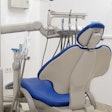
Did you know that 83% of workers in the U.S. reported that they felt stressed at work way back in 2014, according to a survey. If that was true in 2014, I wonder what the percentage of stressed workers is today. You are probably wondering how many of your team members are stressed and what you can do.
 Jen Butler, MEd.
Jen Butler, MEd.Managing or reducing stress is a topic of conversation in all workplaces, including dental practices, because of the acknowledgment of the damage stress can cause. In a dental practice, stress may lead to clinical and practice management mistakes. In my time consulting, I've seen stress contribute to missed diagnoses, infection-control protocols not being followed, poor communication with patients, and even teeth being incorrectly extracted.
As isolated incidents, you might be able to explain away these mistakes, but taken together they are potentially damaging to a practice in many ways, including the potential loss of revenue.
Reputation damage
Stress causes mistakes. Many patients are willing to understand that these happen occasionally, but repeated errors may cause your patients to take to social media to report their experience, leave a negative review, or even seek a new dental home.
Among the many elements that attract customers, the practice's reputation and image are among the most important. A bad reputation may reduce the number of new and existing clients who will make the practice their dental home.
Other consequences
When stress-influenced mistakes lead to clinical treatment errors, patients may not be so quick to forgive and forget. Some patients may decide to seek a lawyer and file a lawsuit against the practice and the individual practitioners. While malpractice insurance may cover these issues, a lawsuit filed against the practice can be expensive in terms of time, stress, and potentially money. Even an out-of-court settlement can financially cripple a practice.
No dental practice that is out to offer quality services and make a profit in the process can ignore the impact of stress. Consistent occurrence of these stress-caused mistakes ought to be a cause of concern and a reason to take steps to reduce stressors in the practice.
Jen Butler, MEd, has worked in the area of stress management and resilience training for more than 25 years. Register to hear her podcast. You can also contact her via email.
The comments and observations expressed herein do not necessarily reflect the opinions of DrBicuspid.com, nor should they be construed as an endorsement or admonishment of any particular idea, vendor, or organization.



















